Let me Tell You a Story: When an opalescent band streaked over the horizon, twenty minutes before sunrise, the druid in the flowing white beard folded his robes tight around his chest. Midsummer, he thought, and the nights were still cold. It had been a long, and tough winter, snowing as late as April, the white not melting until May, leaving the ground hard and unforgiving. The last harvest had been pitiful, and it was to avoid another that they were assembled here, at this sacred space—the farmers who depended on his word, his wisdom, his magic, his ability to command the Sun God.
He nodded. The servant, watching his face intently, grabbed onto the rope looped around the hart’s horns and pulled at it, leading the animal out of the stone circle enclosure. All the men gathered within, still and silent until now in the predawn hours, extinguished their torches and followed the servant. The druid waited until the last of them had left and joined the end of the line. It had rained yesterday, and the ground sucked on his feet, the damp seeped into his shoes and wet his already freezing toes. The wind lifted the edges of his robes and swirled around his chilled body. At least, he thought, glancing east, the clouds had cleared. Ahead, he could hear that snorting of the hart as it struggled and dug its hooves into the dirt, and the panting of the servant as he dragged it along.
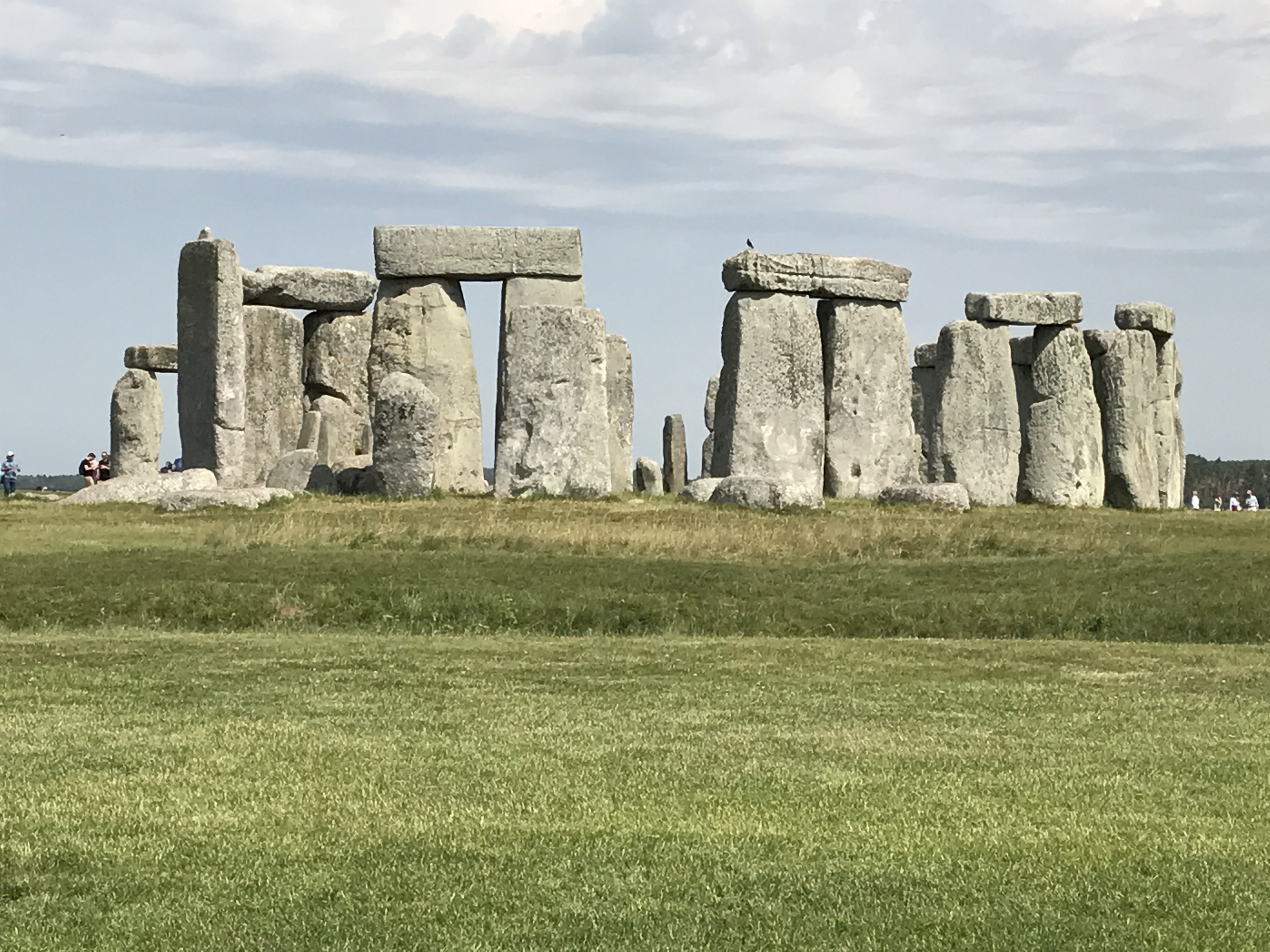
When the sun cut over the flat edge of the earth, tangerine-hued, it splayed golden lines through the low mist that clung to the grass. The landscape lit up, dotted with stands of trees where the forests had been left alone, and the gentle, rolling hills everywhere else, cleared of the trees, the undergrowth, and turned into fields where new stalks of wheat reared in rows. Where the fields had been left to pasture, shaggy cows munched on the grass.
The druid put his hand on his concave stomach and took a deep breath of the morning air. He was hungry, it seemed as though he had been hungry for months now, hoarding his bread and breaking off little pieces to soak in some soft cheese when he wanted to eat. Normally, the farmers would bring him gifts of bread and cheese, some smoked pork, and bags of berries that he could dry on the windowsill for the winter. Their women would bring him their own gifts, for their own reasons. An elbow length of cloth to patch his robe, in return for a poultice for a sick child who had tripped and gashed his forehead. Or a handful of nettles and thyme for his soup pot, so one could have a child with her man. Or another wanted to produce milk for her infant, and he burnt sage in his hut and made her inhale the smoke, for which she gave him some boar meat.
But, the gifts had dwindled over the last few years. They had little themselves, these men and women who came to settle in the valley and farm its rich soil. And…the druid passed a hand over his aching eyes, they had begun to mistrust his magic, his ability to command the sun, the moon and the stars to his bidding.
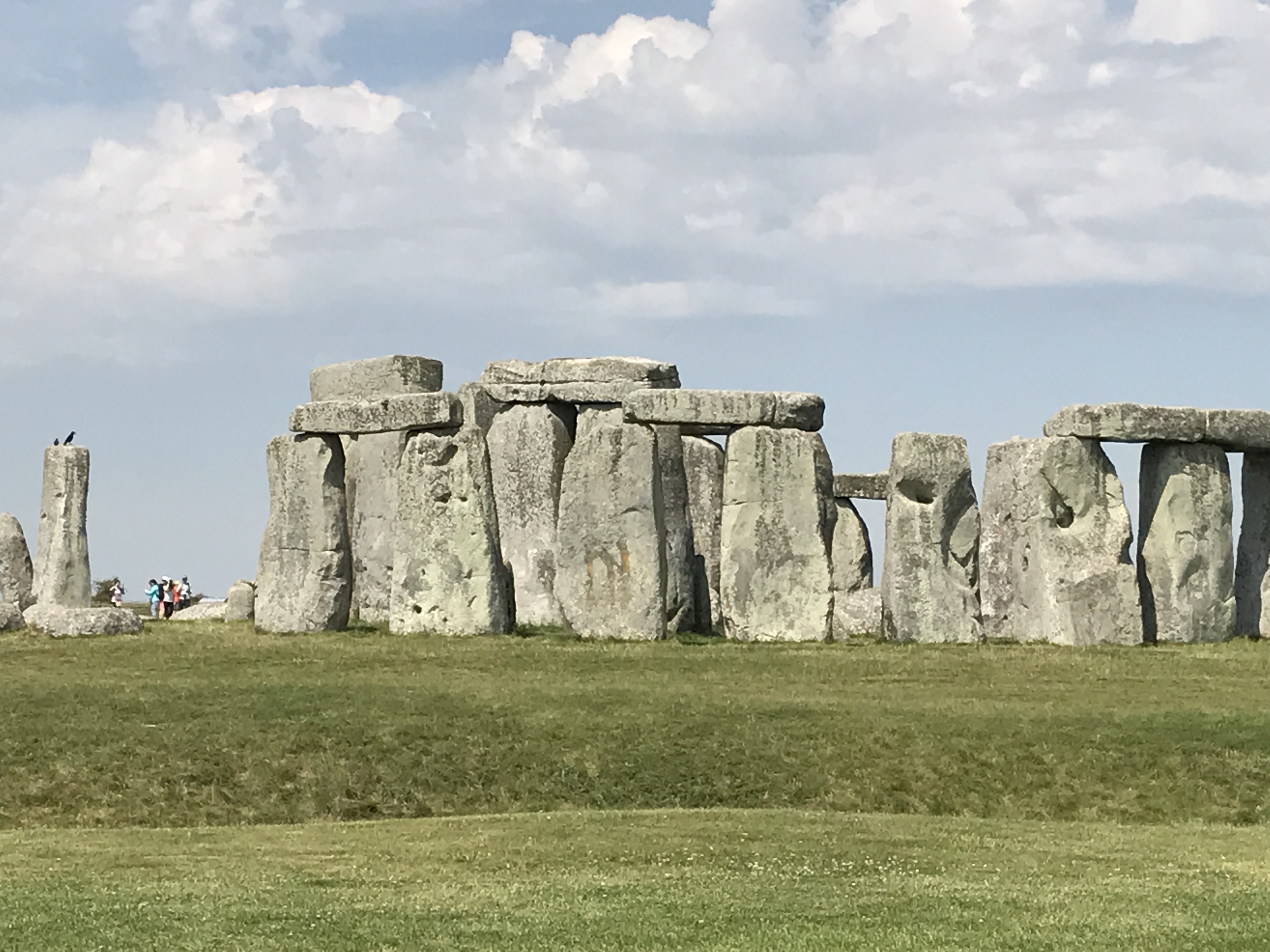
Every midsummer solstice day, he had brought them to the holy stone circle for this ritual, and every year it had failed to appease the earth. It could not, this year.
When the druid had reached the northeastern entrance to the circle, he stopped, and the others halted where they were. The sun shook itself loose from the earth of the night, to turn it into the earth of the day, and the druid watched as it rose from behind the Heel Stone and sent its amber beams upon his face. He swayed lightly from foot to foot, his head raised, his eyes closed, the light clear and liquid behind his eyelids. A good harvest, he prayed. Food for the summer and food to store for the winter, and fodder for the sheep and cows. He raised his hands, welcoming that barely warming light, the sleeves of his robe falling back to reveal his arms, wrinkled with age, his beard white and glowing. He stepped aside, reverently, as the rays of the sun now struck through the entrance of the stones and onto the altar.
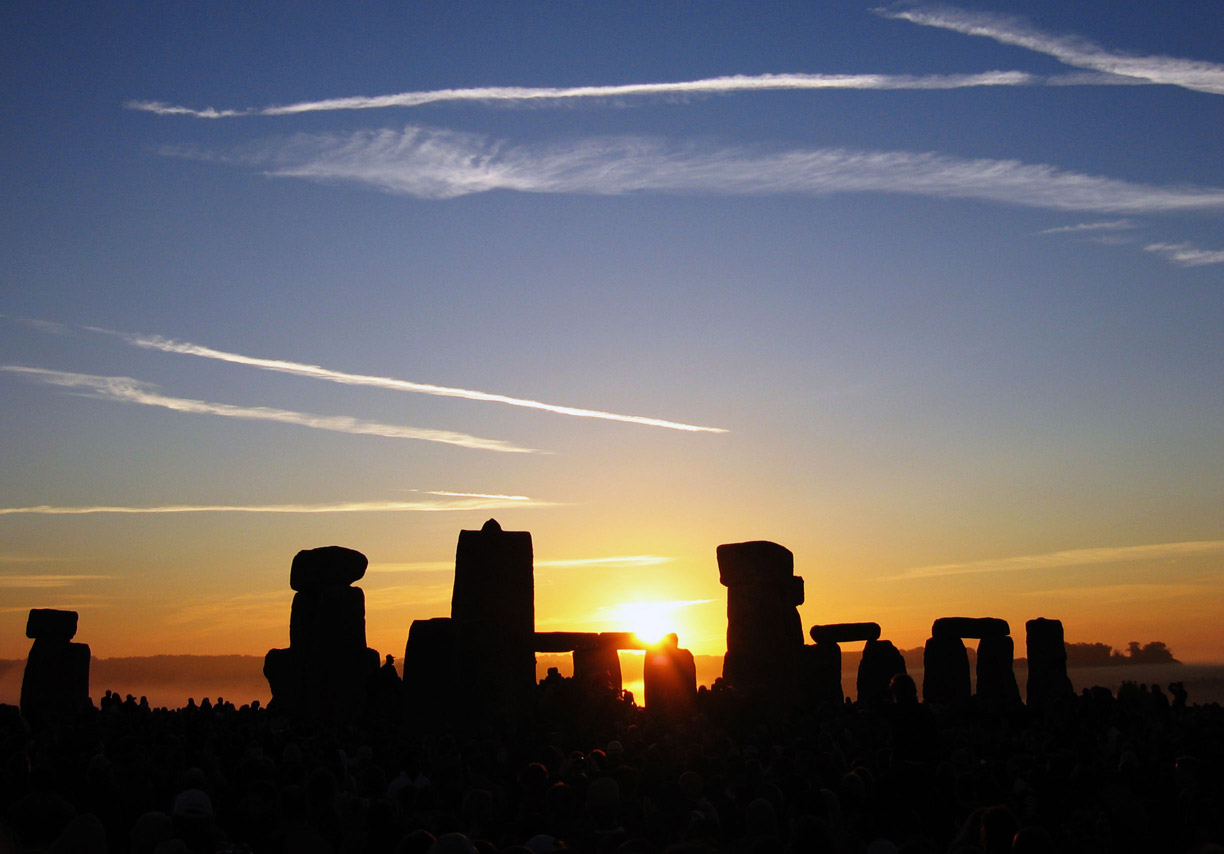
Summer solstice sunrise at Stonehenge. Source.
The men entered the stone circle again and ranged themselves around. The druid chanted, his voice musical, as the servant came in last, dragging the recalcitrant hart behind him. The servant was sweating heavily from the effort, his face red, wiping his dripping chin against the coarse cloth of his tunic. He tied the rope around a rock embedded into the ground and then slid another around the hart’s hind legs and pulled it tight.
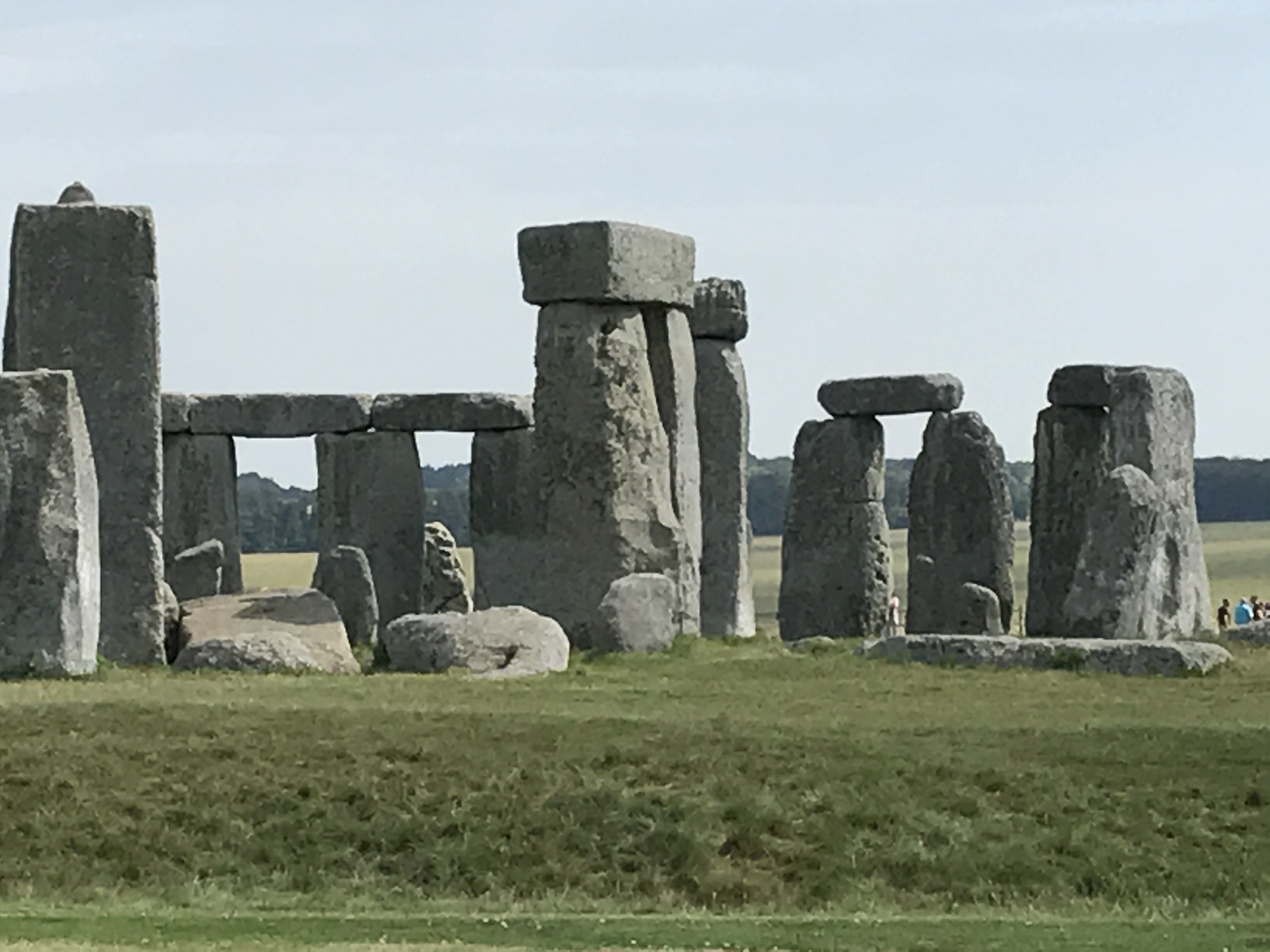
One of the farmers handed the druid an axe, its blade glittering orange in the radiance of that new-minted sun. He held it with both hands, gauging its weight, swinging it cautiously. The hart struggled, made little squealing sounds. Dispassionately, because it had to be done, the druid raised the axe above his head and brought it down hard and fast upon the hart’s neck, cleaving through skin, fur and bone in one swoop. Blood splattered up and around in thick maroon splashes. It drenched the bottom of the druid’s robes, sprayed on the green grass, streaked up the face of the gray stones.
The servant strung up the carcass of the hart by its hind legs and let the blood drain into a wooden bowl. When it was full, he handed it the druid, who drank that first mouthful of still-warm blood, iron-rich and life-giving. Then, he handed it to the farmer nearest to him and watched as they all drank, their mouths and their beards flecked with red.
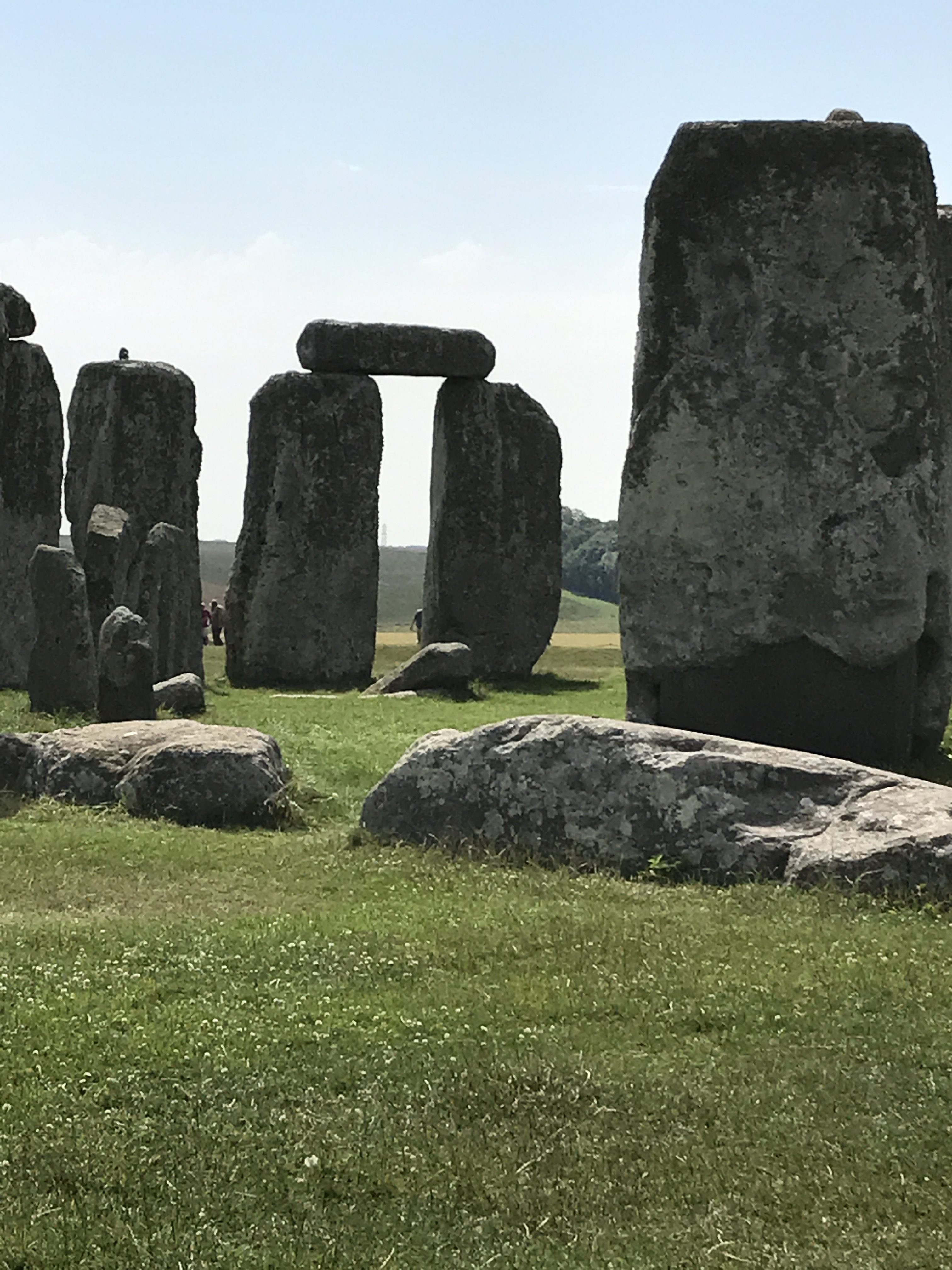
The servant then began skinning the animal, and cutting up chunks of meat which he wrapped in leaves. He worked swiftly in that opening light, handing out the parcels, and each of the men gathered there took one and tucked it under his arm. Then, they filed away out of the Stonehenge, down to the valley where their houses lay, encircled by rich fields. One, on his way out, shoved a packet into the druid’s hands and muttered a ‘thank you.’ The druid nodded.
He stayed on, as the servant dug a hole within the circle, turning over the dark soil onto the close cropped green of the grass, filling it with the hart’s bones, and tamping back the earth again. When he had left, the druid stepped outside the northeast entrance, watched low, white clouds scud across the vast sky, and bent his head to the sun. It had been a good, clean kill. The harvest would be good also. And, this summer, there would be lush rains, and a good reaping come fall.
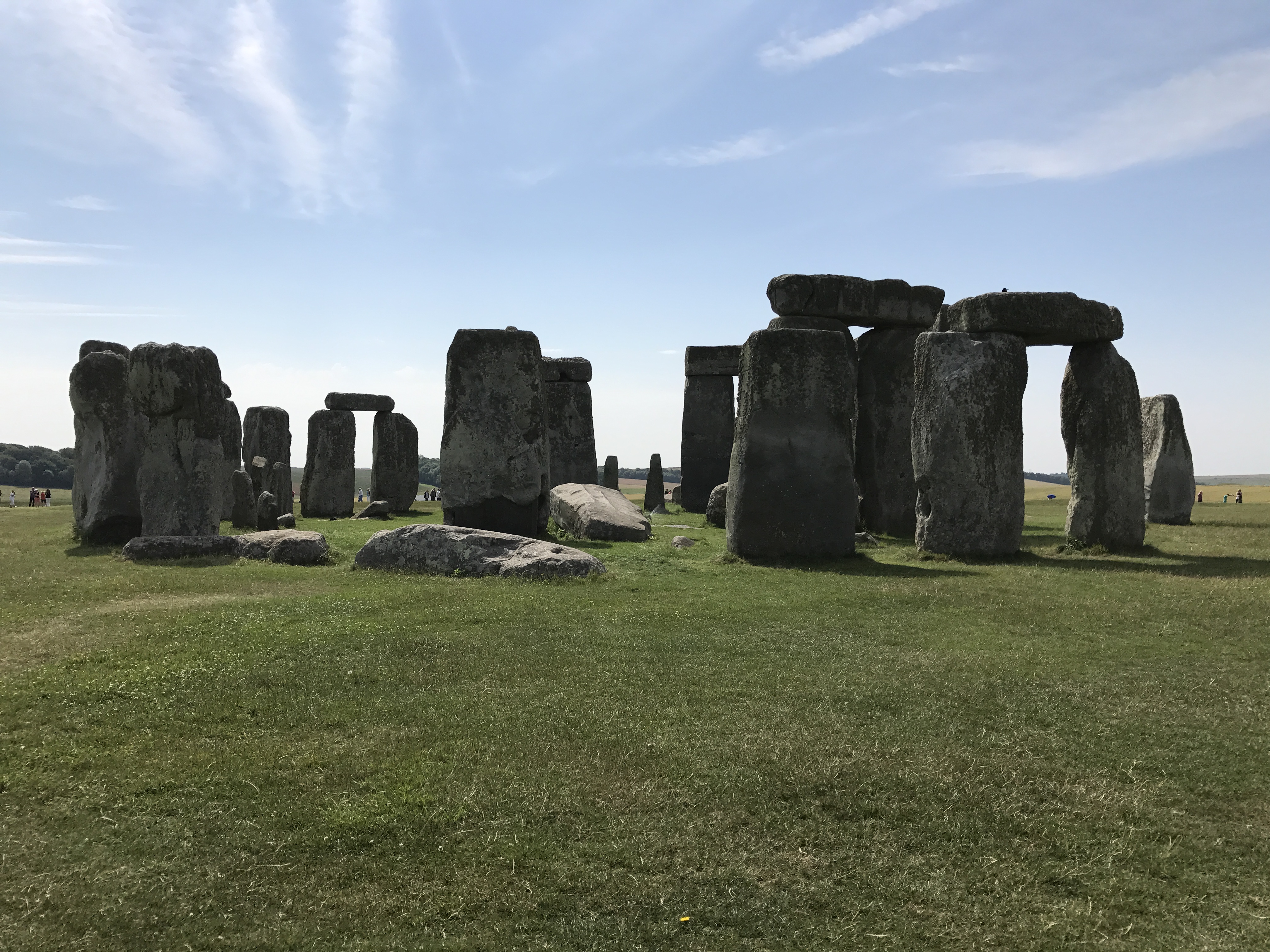
It was only as he went back to his home that he looked at the packet. Inside, was a small wheel of cheese, about the size of his palm. His mouth watered, as he thought of that dry, hard wedge of bread he had tucked behind his firewood for safekeeping, slathered with the cheese. A first gift. And, more to come. Because now, they had believed him and his power, and that in itself would change their fortunes…
All the above? Pure conjecture on my part. But, that’s the thing about Stonehenge; almost all theories of what it is, why it was constructed, and what purpose it was used for, are still, after all these years, just pure speculation.
No one knows if Stonehenge looks today as it did originally, or when exactly this circle of stones was raised. Some of the oldest stones date to something like 3000 BCE, some of the ‘newest,’ to about 2200 BCE.
If you’ve enjoyed reading this, please consider sharing by emailing a link to the post, and by hitting the social media share buttons below, so others may read also. Thank you!
On the next post—we explore the Stonehenge theories—and, Stonehenge today—Stonehenge—Standing in Time—Part 2

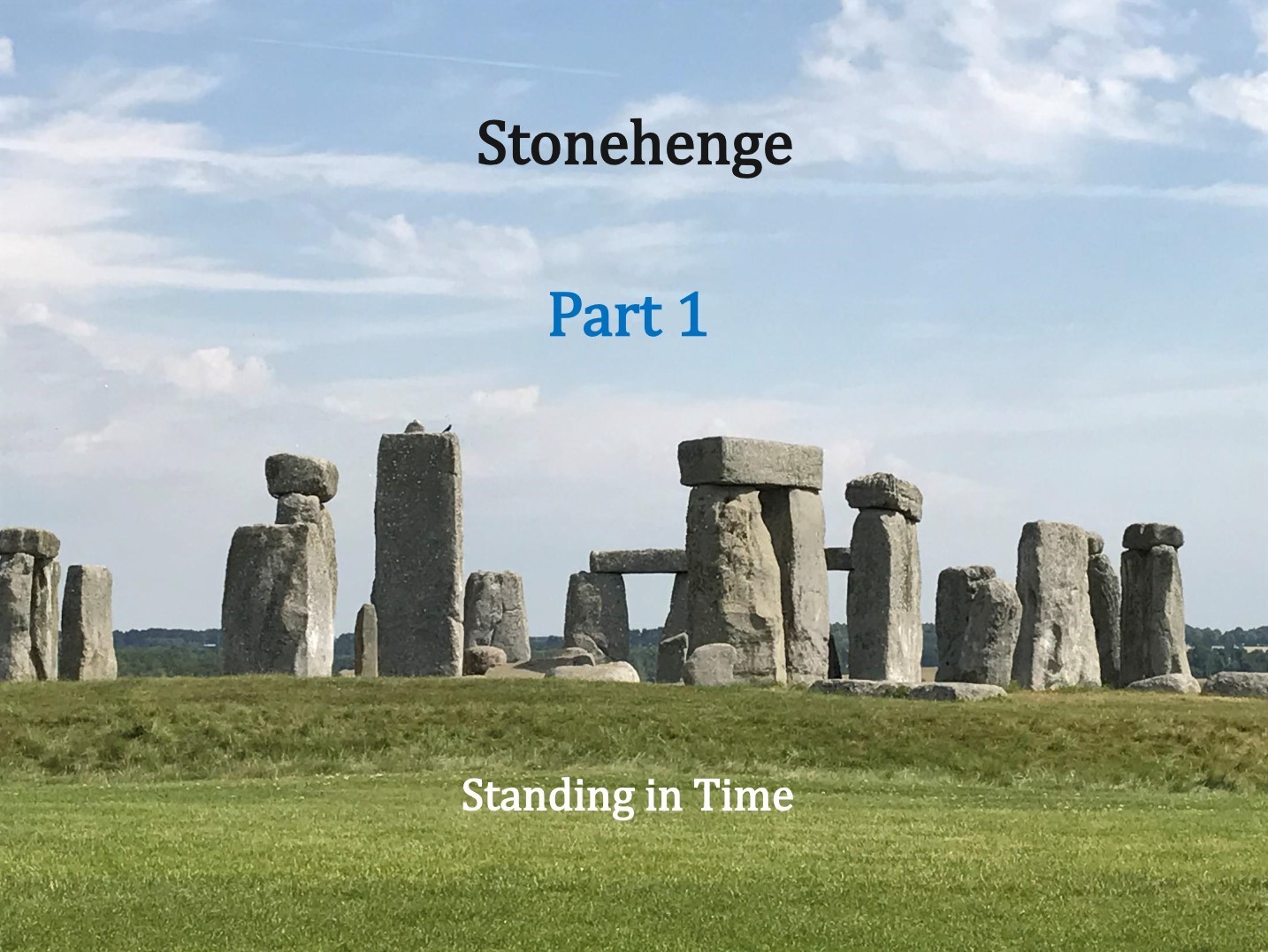
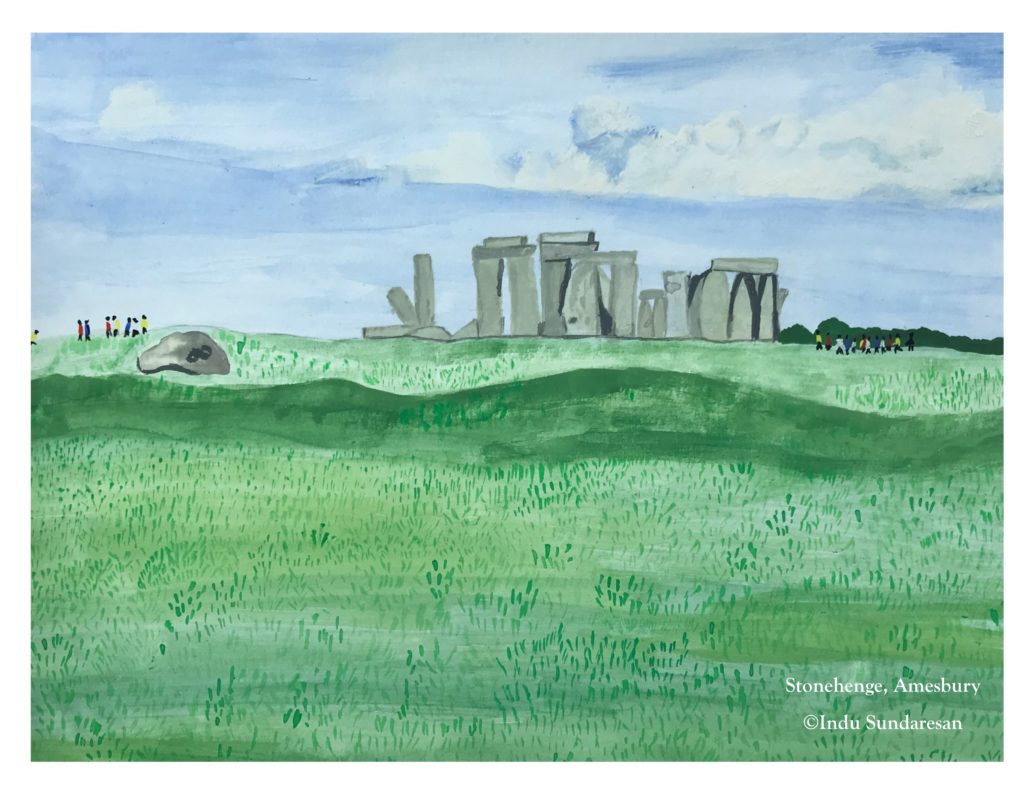
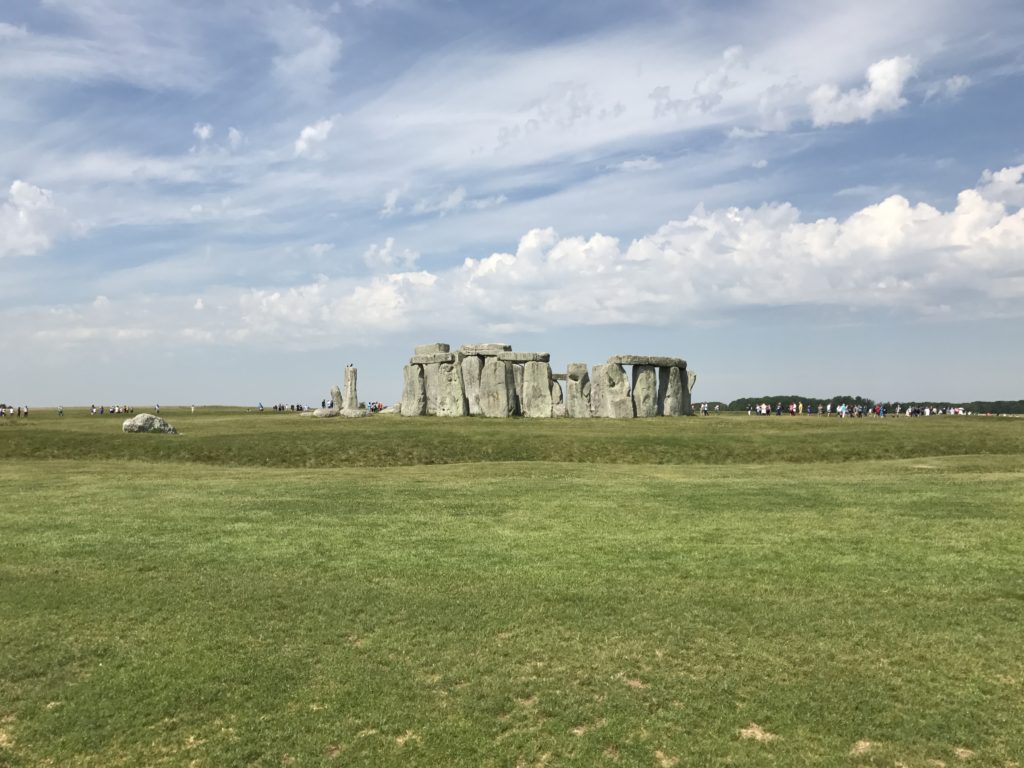

3 Replies to “Stonehenge: Standing in Time—Part 1”